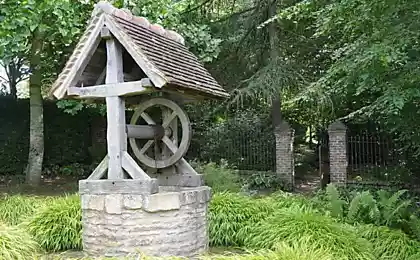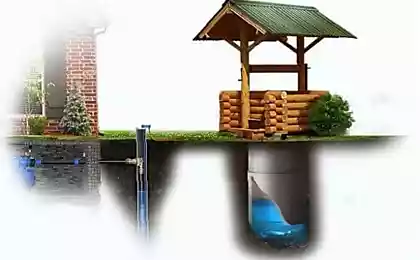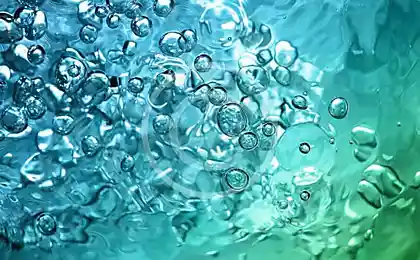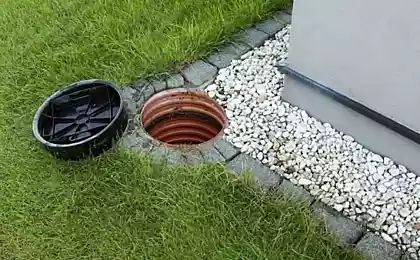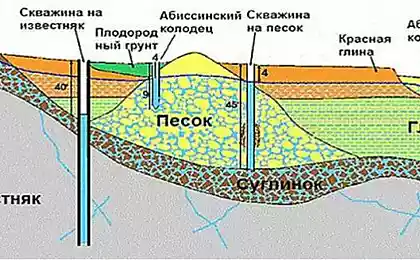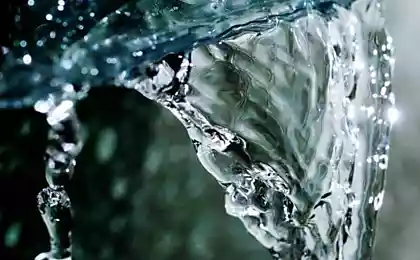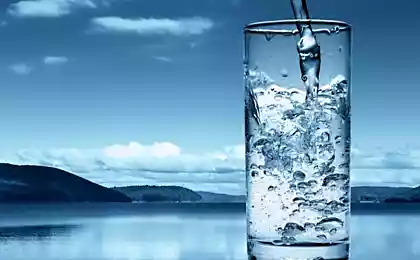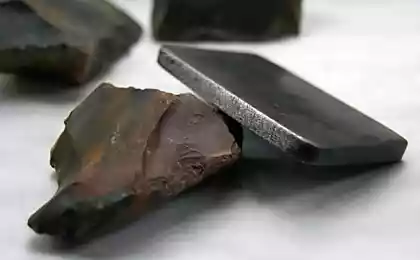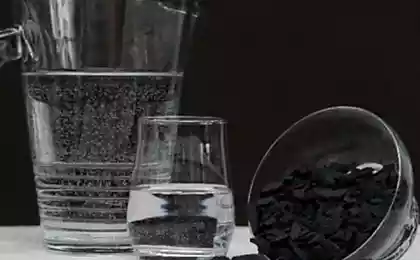187
How to know that you can drink from the well without fear
Who wouldn’t want to be away from the city? Breathe clean air or get drunk. fresh and cool well water. How do you know what water is in the well? Unfortunately, not every well can be drunk without fear. There is a whole list of rules that will help determine whether well water is safe. Understand and remember. these rules together.

What water in the well Poor quality drinking water can lead to undesirable and The consequences. For example, it can be problems with the intestines or stomach. Before drinking water from an unfamiliar well, you need to carefully examine and examine it. It shouldn't take too long. It is better to be safe than later. stomachache.
239118
Most often wells in the countryside are ennobled and can look pretty. No weeds, no mosses, no trash. People drink water from this source and try to keep it in proper condition. If there is an unfamiliar well looks pretty repulsive.It may not work for some serious reason. It could be abandoned because of this. In this case, it is better to look for another well.
Do not drink water from the well, if in critical proximity to it there are various enterprises that can be potentially dangerous to groundwater. For example, chemical plants, various farms. In addition, even home septic tanks should be located. distance from the well. All this should be taken into account when choosing a place for drilling a well.

To determine what water in the well, you can independently. Of course, this method is not as accurate as laboratory tests. But to decide whether to drink this water or not, it is enough. Okay, we have to. wellwaterPour a little into a clean glass container and carefully consider it. If at first glance water is clean and transparentYou will be one step closer to the best water.
Moreover, quality water should not have any smell-specific. Especially chemical. This also includes the smell of mold, rot, river silt, metal, organic waste. Each of these odors indicates exceeding the permissible norms of certain components in drinking water. A bad smell can also be felt when the water is heated. If you feel the water smells or doesn’t look very attractive, don’t take the risk.

You can go further and check the seemingly safe water for the presence of mineral salts and determine the level of its hardness. For example, to find out how hard the water is, just add a drop of liquid soap to it. It foams well - the water is not too hard. And vice versa.
If you want to find out mineral In well water, you need to drip some of this water on a clean glass surface. When the water dries and leaves a cloudy spot, the amount of mineral elements can be quite high.
The transparency of the water is easily determined using the same clean glass vessel. Even through such a device should well-readLet's say on a paper or a paper. In addition, on a white background, it is easy to notice whether there is sediment at the bottom of the glass container with water. It can be small garbage, sand, pebbles, worms. If you decide to taste such water, be extremely careful.

Undoubtedly, if all the external indicators of water contradict to try it, then Don't try.. If the water looks and smells normal, you can take a small sip and, thanks to your taste buds, analyze its condition. It is advisable to do this for people with a strong stomach. So, if you drank some water from an unfamiliar well and felt a sweet taste, this may indicate the presence of plaster particles in such a liquid. The salty taste, of course, confirms the appearance of various mineral salts.
A bitter aftertaste signals the presence of magnesium sulfate in such water. The taste of rot appears due to the presence of organic elements in such water. From an excess of iron in the water, a taste of metal may appear.
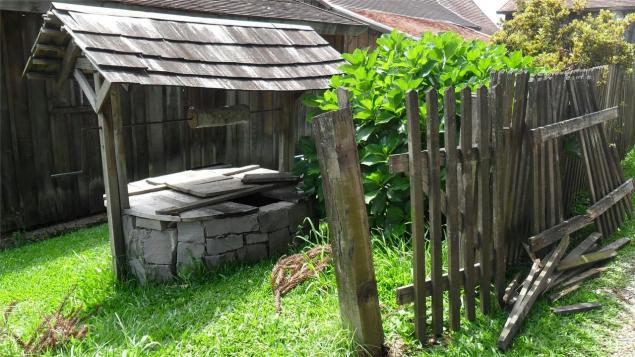
The final water quality test can be supplementation into the water. If the solution turns out to be a soft pink hue, then the water is safe, and if it is cloudy yellow, you do not need to expose your stomach to danger. Approach the study of water with special responsibility.

What water in the well Poor quality drinking water can lead to undesirable and The consequences. For example, it can be problems with the intestines or stomach. Before drinking water from an unfamiliar well, you need to carefully examine and examine it. It shouldn't take too long. It is better to be safe than later. stomachache.
239118
Most often wells in the countryside are ennobled and can look pretty. No weeds, no mosses, no trash. People drink water from this source and try to keep it in proper condition. If there is an unfamiliar well looks pretty repulsive.It may not work for some serious reason. It could be abandoned because of this. In this case, it is better to look for another well.
Do not drink water from the well, if in critical proximity to it there are various enterprises that can be potentially dangerous to groundwater. For example, chemical plants, various farms. In addition, even home septic tanks should be located. distance from the well. All this should be taken into account when choosing a place for drilling a well.

To determine what water in the well, you can independently. Of course, this method is not as accurate as laboratory tests. But to decide whether to drink this water or not, it is enough. Okay, we have to. wellwaterPour a little into a clean glass container and carefully consider it. If at first glance water is clean and transparentYou will be one step closer to the best water.
Moreover, quality water should not have any smell-specific. Especially chemical. This also includes the smell of mold, rot, river silt, metal, organic waste. Each of these odors indicates exceeding the permissible norms of certain components in drinking water. A bad smell can also be felt when the water is heated. If you feel the water smells or doesn’t look very attractive, don’t take the risk.

You can go further and check the seemingly safe water for the presence of mineral salts and determine the level of its hardness. For example, to find out how hard the water is, just add a drop of liquid soap to it. It foams well - the water is not too hard. And vice versa.
If you want to find out mineral In well water, you need to drip some of this water on a clean glass surface. When the water dries and leaves a cloudy spot, the amount of mineral elements can be quite high.
The transparency of the water is easily determined using the same clean glass vessel. Even through such a device should well-readLet's say on a paper or a paper. In addition, on a white background, it is easy to notice whether there is sediment at the bottom of the glass container with water. It can be small garbage, sand, pebbles, worms. If you decide to taste such water, be extremely careful.

Undoubtedly, if all the external indicators of water contradict to try it, then Don't try.. If the water looks and smells normal, you can take a small sip and, thanks to your taste buds, analyze its condition. It is advisable to do this for people with a strong stomach. So, if you drank some water from an unfamiliar well and felt a sweet taste, this may indicate the presence of plaster particles in such a liquid. The salty taste, of course, confirms the appearance of various mineral salts.
A bitter aftertaste signals the presence of magnesium sulfate in such water. The taste of rot appears due to the presence of organic elements in such water. From an excess of iron in the water, a taste of metal may appear.

The final water quality test can be supplementation into the water. If the solution turns out to be a soft pink hue, then the water is safe, and if it is cloudy yellow, you do not need to expose your stomach to danger. Approach the study of water with special responsibility.
Properly collecting potato peels and carrying to the country, although the whole family scolds my habit.
Mom put a loaf of bread in the freezer, I explain why.

